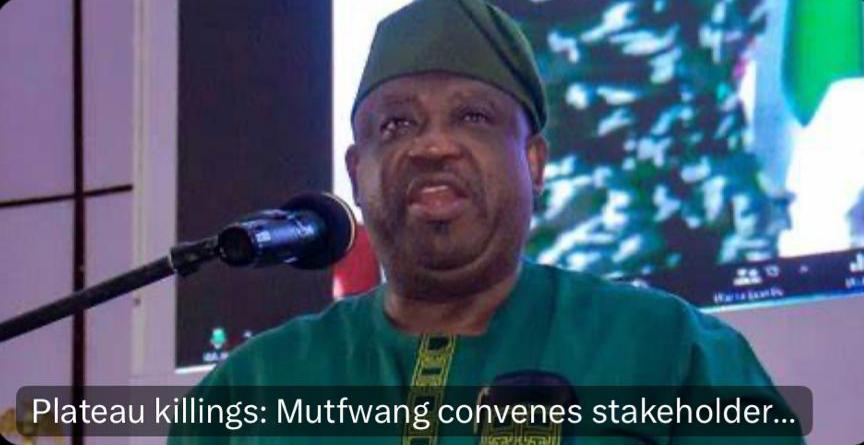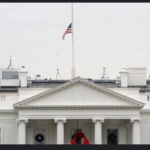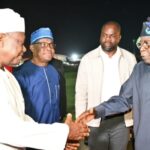Mutfwang Summons Critical Stakeholders’ Meeting Over Renewed Killings in Plateau

In response to the wave of violence that recently swept through parts of Plateau State, Governor Caleb Mutfwang on Monday convened an emergency meeting with key stakeholders, aimed at addressing the deteriorating security situation and forging a path toward lasting peace and reconciliation.
The high-level meeting, which took place in Jos, brought together a broad spectrum of leaders including traditional rulers, religious heads, community representatives, security chiefs, and members of the Fulani socio-cultural group, Miyetti Allah Cattle Breeders Association of Nigeria (MACBAN).
Also in attendance were members of the Plateau State House of Assembly, youth leaders, and civil society organizations.
The meeting follows the most recent bout of killings in communities across Mangu, Bokkos, Riyom, and Barkin Ladi local government areas. According to reports, dozens of people were killed in their homes during night raids, and many others injured or displaced. Governor Mutfwang, visibly distraught, condemned the attacks in strong terms.
“We must tell ourselves the truth—enough is enough. People are being killed in their sleep, unprovoked. In some cases, reprisals have taken place. This cycle of violence must end,” he said.
The governor described the killings as deliberate and coordinated, suggesting that they bear the hallmarks of “a sponsored genocide,” and warned that a situation where over 64 communities across the state have been overtaken by armed militias is no longer acceptable.
Call for Unity and Collaboration
Governor Mutfwang emphasized the need for unity among the people of Plateau, noting that mutual respect and understanding among ethnic and religious groups were vital for the state’s stability.
“We cannot allow criminal elements to continue manipulating our differences for their benefit. This is not about Christians or Muslims, Berom or Fulani. This is about peace-loving people against those who thrive in chaos,” Muftwang stated.
He urged all communities to embrace peace, renounce revenge, and work closely with government and security agencies to ensure justice is served through lawful means.
During the meeting, stakeholders from affected communities shared painful testimonies of destruction, loss, and displacement. Representatives from MACBAN condemned the attacks and reiterated their willingness to work with security agencies to identify and isolate criminal elements among herders.
Traditional rulers called for stronger state intervention, the return of displaced persons to their ancestral lands, and the establishment of security outposts in vulnerable communities.
Youth leaders also demanded the arrest and prosecution of those behind the attacks, and called on the federal government to take a more active role in securing the state.
In response to the suggestions and concerns raised, Governor Mutfwang announced a number of immediate and long-term interventions:
He pledged to liaise with the federal government and security chiefs to deploy more personnel to vulnerable areas and set up more security posts.
The governor promised that the government would begin structured plans to return displaced persons to their homes, rebuild destroyed villages, and provide humanitarian support.
Intelligence and Surveillance: He revealed that the state government is working on an intelligence-sharing framework that will help security agencies preempt and disrupt planned attacks.
Governor Mutfwang also addressed the growing issue of drug abuse among youths, which he said is contributing to criminality.
He said the state would strengthen its fight against drug trafficking and abuse.
The meeting ended with a unified call for peace, with all stakeholders agreeing to work collaboratively to restore security and harmony in Plateau State.
The governor urged residents to report suspicious movements and activities and not to allow fear to deter them from supporting peacebuilding initiatives.
“I believe that Plateau can rise again. We will not allow violence to define us. We will rebuild, reconcile, and emerge stronger—together,” he said.
The situation in Plateau remains tense but hopeful, with many looking to the government and security agencies to match their words with action in the days ahead.









